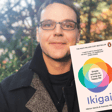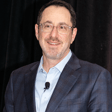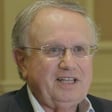
TEBI podcast 50: Charlotte Lockhart on a revolution in work-life balance
In the 10th of a series of 12 TEBI episodes looking at meaning and money during later careers or second lives, Jonathan Hollow talks to one of the global founders of the 4-day week movement, Charlotte Lockhart.
What if we could continue in our current jobs, and have 50% more free time to pursue our other passions, every single week? That's Charlotte's vision.
She has a fascinating story. She more or less fell into the role of being a global spokesperson and influencer about the idea of a better work-life balance – because she and her partner tried this approach in the business they built and own: and it worked! The global interest was so immense, they felt they had a duty and an opportunity to spread the evidence and the methods they tried across the world. And businesses all over the world are now experimenting with the evidence and methods provided by her organisation, 4-Day Week Global.
Charlotte talks frankly about the generational change that she feels is driving this movement, and what it’s been like to face this moment of opportunity at the same time as as a diagnosis of cancer. Her energy is simply inspirational.
This podcast series has been developed with financial planning firm Mulberry Bow. Based in London, they offer a highly personalised service to around 150 individuals and families. Robin Powell and Jonathan Hollow are very grateful for their enthusiastic support for "Second Lives”.
Transcript: https://www.evidenceinvestor.com/charlotte-lockhart-work-life-balance/ --
Mulberry Bow financial planners: https://mulberrybow.com/ —
4-Day-Week Global: https://www.4dayweek.com/ —
4-Day-Week Global’s evidence base: https://www.4dayweek.com/research --
Jonathan Hollow and Robin Powell's book "How To Fund The Life You Want": http://tinyurl.com/how2fund --















